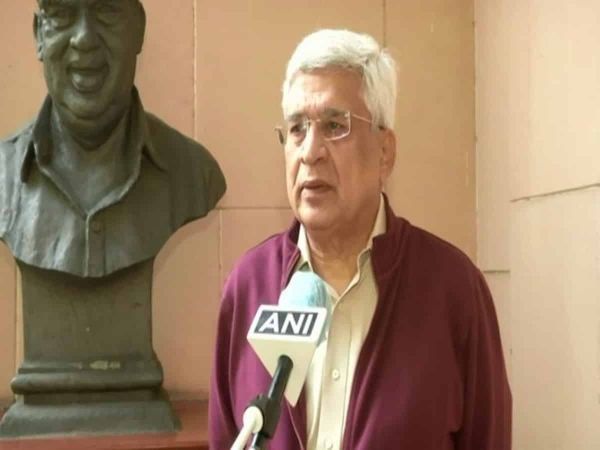
New Delhi: The skills that Sitaram Yechury learnt in his student days at the Jawaharlal Nehru University were put to good use by him as he emerged as a national leader and a relentless fighter for democracy, secularism and federalism, former CPI(M) general secretary Prakash Karat said on Saturday.
At a condolence meeting here, Karat said the real tribute to Yechury’s memory would be “to defend and protect” what the JNU stands for and lamented that efforts are being made to “undermine and destroy the JNU that we had all worked” to create.
Yechury passed away on September 12 at the age of 72 after a prolonged illness.
Karat, who along with Yechury was among those who shaped the students union at the premier institution, said the fighting spirit in JNU continues.
“Sitaram, as the General Secretary of our party, the Communist Party of India (Marxist), has, in the last one decade, been a relentless fighter for democracy, secularism and federalism, and was playing a key role, important role, in gathering all the secular democratic forces to see that the widest and broadest resistance is put up to this Hindutva, authoritarian, communal regime.
“And I think, therefore, what began in JNU for Sitaram was in fact a continuity,” Karat said.
“Fifty years later, the Marxism he learnt in JNU, the skills he learnt as a political activist in JNU, that was put to very good use by him when he emerged as an important national political leader,” he said.
Yechury had played a role in the inception of the JNU Students Union during the formative years of the institution and its policies.
A day after his death, JNU was the first place where Yechury’s body was brought for people to pay their last respects.
Recalling the day, Karat said he had a “mixed feeling” when he went there.
“When we took Sitaram on his last journey, we also took him to JNU on the 13th of September…. I had mixed feelings when the students and teachers of JNU were paying homage to him,” he said.
“On the one hand, I was filled with happiness and admiration because that fighting spirit in JNU, I saw, still continues.
“On the other hand, I was also filled with apprehension because I know what is being done, what insidious efforts are being done to undermine and destroy the JNU that we had all worked for, to create and build together,” he alleged.
“So I think that when we celebrate the life of Sitaram Yechury and pay tribute to his memory, this little place called Jawaharlal Nehru University, you must be able to defend and protect what it stands for… and it becomes part of our wider struggle and endeavour to see that the idea that we want of India is not destroyed by the powers that be. That would be the best tribute that we can give Sitaram Yechury,” he said.
Recalling his JNU days, Karat recalled how students framed the constitution of the student union through a democratic process.
After that, in 1972-73, the students union framed the new admission policy whereby students of deprived socio-economic background would get weightage in the entrance procedure, said Karat.
Recalling the Emergency days, he said, “I can tell you that JNU stood out at that time in its resistance to the Emergency and the authoritarian attacks.”
“This fight against Emergency and the fight for democracy was the major starting point of his political life and career. Now, years later, JNU has been under attack from the RSS and the BJP and the Modi government.
“And I recall Sitaram saying in an interview in 2016, when the first serious attack took place in the JNU, when many student leaders were charged with sedition, he said this attack on JNU is a launch pad for an insurrection against the Constitution,” Karat said
“And he said, I know I am using strong words, but then he goes on to explain how the RSS has never been able to reconcile to the idea of JNU. How it has always wanted to destroy what JNU symbolises,” he said.
Former JNUSU presidents, D. Raghunandan, Jagdishwar Chaturvedi, Rashmi Doraiswamy, T. K. Arun, Nalini Ranjan Mohanty, Amit Sen Gupta, Amiya Kumar and Surajit Mazumdar also shared their memories about the leader.
Recalling Yechury’s early days, Raghunandan said he was a talented tennis player, skilled at playing Bridge, was fond of Hindi film music, and remembered the lyrics of all songs.
As Yechury became actively involved in activism at the JNU, tennis and Bridge stopped, though his love for music continued, he said.
“That was a major transformation, I believe that is when Sitaram became a veteran,” he said.